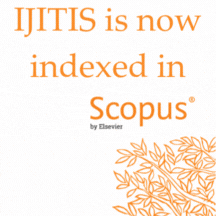Machine Learning for Legal Compliance in the Energy Sector: A Predictive Regulatory Framework
DOI:
https://doi.org/10.15157/IJITIS.2025.8.3.642-665Keywords:
Machine Learning, Legal Compliance, Energy Efficiency, Predictive Modelling, Random Forest, Support Vector Machines, Linear Regression, Regulatory Framework, Energy Sector, Compliance MonitoringAbstract
Increased complexity in energy regulations and sustainability standards has created a pressing need for automated regulatory compliance monitoring systems. A predictive regulatory system integrating legal compliance analysis with machine learning techniques in the energy sector is proposed in this work. On the Energy Efficiency dataset, Linear Regression, Support Vector Machines (SVM), and Random Forest were used to predict building energy loads and determine compliance with regulatory standards. The research demonstrates that machine learning enhances not just the precision of forecasts but also proactive identification of non-compliant cases, reducing legal vulnerabilities and helping policymakers implement standards of efficiency. Statistical measures and correlation determine the most impactful features, and relative performance metrics (accuracy, precision, F1, and R²) determine the robustness of the models. The system bridges the gap between energy engineering and regulation law and provides an energy sector compliance management solution that is scalable and data-driven.
Downloads
Published
How to Cite
Issue
Section
License
Copyright (c) 2025 Enkeleda Olldashi, Elena Bebi, Mostafa Abotaleb, Hussein Alkattan, Raed Hameed Chyad Alfilh

This work is licensed under a Creative Commons Attribution 4.0 International License.








